An endless, overwhelming hunt for new music
A simple question for a friend turns into a fascinating journey into personal music curation extremes. Also, I was on a podcast!
How do you find new music? Do you make your own trends, or follow your friends? Do you play entire albums, or stream the charts? Or do you search endlessly for new music and fastidiously curate playlists until they’re whittled down to musical perfection? I’ve become fascinated by different methods of music organisation so decided to dive in, starting with my friend Rob. Let’s go…
I have a friend. His name is Rob. He’s a dad, works in media and loves comic books. He also thinks he’s clocked music. Rob has spent much of his life making an exact science out of finding new songs he likes, and implanting them in his brain.
It’s complicated, but it works. At least, it works for him.
It’s his belief that music is the one thing we still react to like we’re five years old, no matter our age. It’s a primal instinct. “We're all still little kids when we find a song we like, and just want to listen to it over and over again, until it lodges in the head forever,” Rob says.
So, over the years, he’s boiled his music-finding methods down to a fine art.
Rob told me about all of this when he picked me up to watch a movie one day. I jumped in his car and he slid a CD-R into the stereo like it was 2003 all over again. I laughed and asked if he’d heard of Spotify or Apple Music. He shook his head. Rob doesn’t use music streaming services. Ever.
He proceeded to tell me how he finds new music, and I listened, with my jaw dropping further with every sentence.
Here, in his own words, is how Rob discovers new music:
“I get these free CDs that still come with music magazines, and there are about four or five magazines a month that provide this, usually British mags like Mojo and Uncut. Between all these free CDs, there is a huge variety of new music of all genres, and weird, esoteric old stuff. Some of the magazines I buy, but most of them I get through the local library, and I rip all the songs onto a hard drive, and there are dozens and dozens of songs every couple of months. And then I burn them back onto another blank CD, which is then full of hours and hours of strange new sounds to get through. And then I blast them in my car until I've figured out what I like.”
But wait, there’s more! Rob has rules for this process:
“I have to listen to every song for at least two minutes, five times over, while driving around. It takes more than a month of driving to and from work and the comic shop, (my two main destinations by car), to get through one of these giant CDs like this. Even if they're awful, droning bullshit, or whining, irritating novelty songs, they get two minutes, and I go through them five times until I'm absolutely sure of whether I like it or not.”
At first, I thought this was insane. It seems so time-consuming. Rob agrees that it’s a complex process. “It's so stupidly complicated, but it works for me,” he says.
He even wrote a blog about it.
But then I got wondering, maybe there’s method in his madness. Is it really so different to anyone else’s obsessive music curation?
Recently, broadcaster John Campbell - bless that national treasure - went viral with his secret Spotify playlist called JC tryna be alive. He told David Farrier’s great newsletter Webworm that he “gratefully, lovingly and obsessively” chooses songs for it, then puts them in order, so they made some sort of rhythmical sense.
Campbell later told RNZ that he does this at home, on his own, for hours, often as a way of recovering from getting up far too early to front Breakfast at TVNZ.
Both Rob and JC’s methods sound intense, but, when I think about it, I guess I do something similar. I use Apple Music, and have four main playlists that I am just as controlling about. One’s called #DOPENEWSHIZ and that’s where, every week, I place every new song, artist and album that I find and think I might like.
To find that stuff, I compulsively read websites, music newsletters, Twitter trends and TV show playlists. I’ve recently added new records by Vince Staples, Tyler, the Creator and Wolf Alice. They’re all awesome.
Then, throughout the day, I’ll have that playlist rotating on shuffle. If a song starts to stand out, I move on onto phase two. That’s when my next two playlists come into - ahem - play.
On #DOPEFILE, I add the most disgusting, filthy, grimy, sweaty, hyped-up hip-hop songs I can find. They’re the ones that, if I play them loud enough, might make my head explode. I love this playlist. I’m consumed by it. Some of these songs get 100+ listens.
Like JC, I am constantly tweaking it. This is the playlist I don’t let my kids listen to. Here’s how it currently stands…
The other one, the one I do play around my kids, is called #DOPECHILL. That’s where everything else goes. The indie singer-songwriters. The super-smooth R&B jams. The nerdy bedroom guitar boffins. Lorde’s Solar Power. And Olivia Rodrigo’s Deja Vu. Shit that’s a bop.
It works for all occasions. Fixing the kids’ breakfast. Writing these Boiler Room newsletters. Having a few drinks with friends. Cooking dinner in the evening. Winter Spring. Autumn. Summer. God I wish it was summer right now.
I haven’t found an occasion where it doesn’t work. I’m literally listening to it right now. Here’s how that one currently stands…
Like Rob, I have rules too. Each playlist can’t be more than 100 songs long. No double ups. No more than three songs from a single album. If I have to cull them, the songs I still can’t get enough of go into a playlist called #DOPEBANGERZ, because, yes, I am that cheesy.
After all that, I guess I’m not that different to Rob, or JC, after all. I just want to find the best music that my brain likes.
Over years of using his technique, Rob reckons his method works. After five spins of his CD-R in his car, he knows which songs are keepers, and which are going in the bin. There’s no prejudice in his decision making. No pre-determined genres, songs, or artists.
The only question he asks is: “Is this good music?”
“The names don't come up on the car stereo, so I never saw who the artists actually were until I make the conscious effort to look them up on the internet,” he says. “There is no hype, and no prejudice in trying this music this way. If it's good to drive around town to, that's all you need.”
Are we doing this all wrong? Is there an easier, quicker way to find and catalogue music than this? How do you do it? Tell me! I’m fascinated!
So I did a podcast-type thing…
If you’re looking for something deep, knotty and lengthy to dive into this weekend, I can thoroughly recommend Lewis Tennant’s Verbal Highs podcast. Why? Because I’m on the latest episode. Duh!
It was my first time doing anything like this and I honestly had a blast. We talked about all kinds of stuff, like this newsletter, my work covering the iMax building, Auckland’s live music venues, a review I did of a terrible Macklemore show, the state of music journalism, and much, much more.
If you’re into it, you can listen to Verbal Highs here. And while you’re there, check out some of the other episodes featuring far more important people, like Tom Sainsbury, Mu from Fat Freddy’s Drop, and Jackie van Beek. Happy Friday!




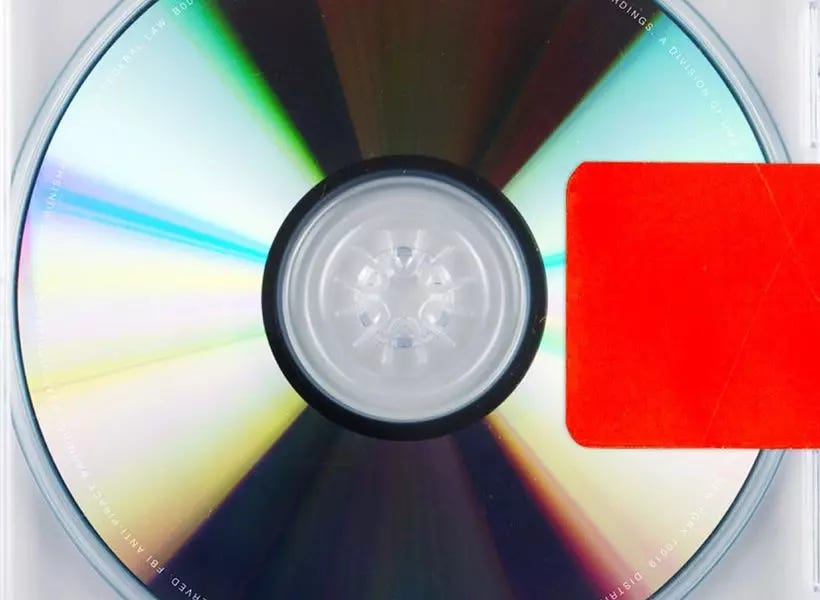
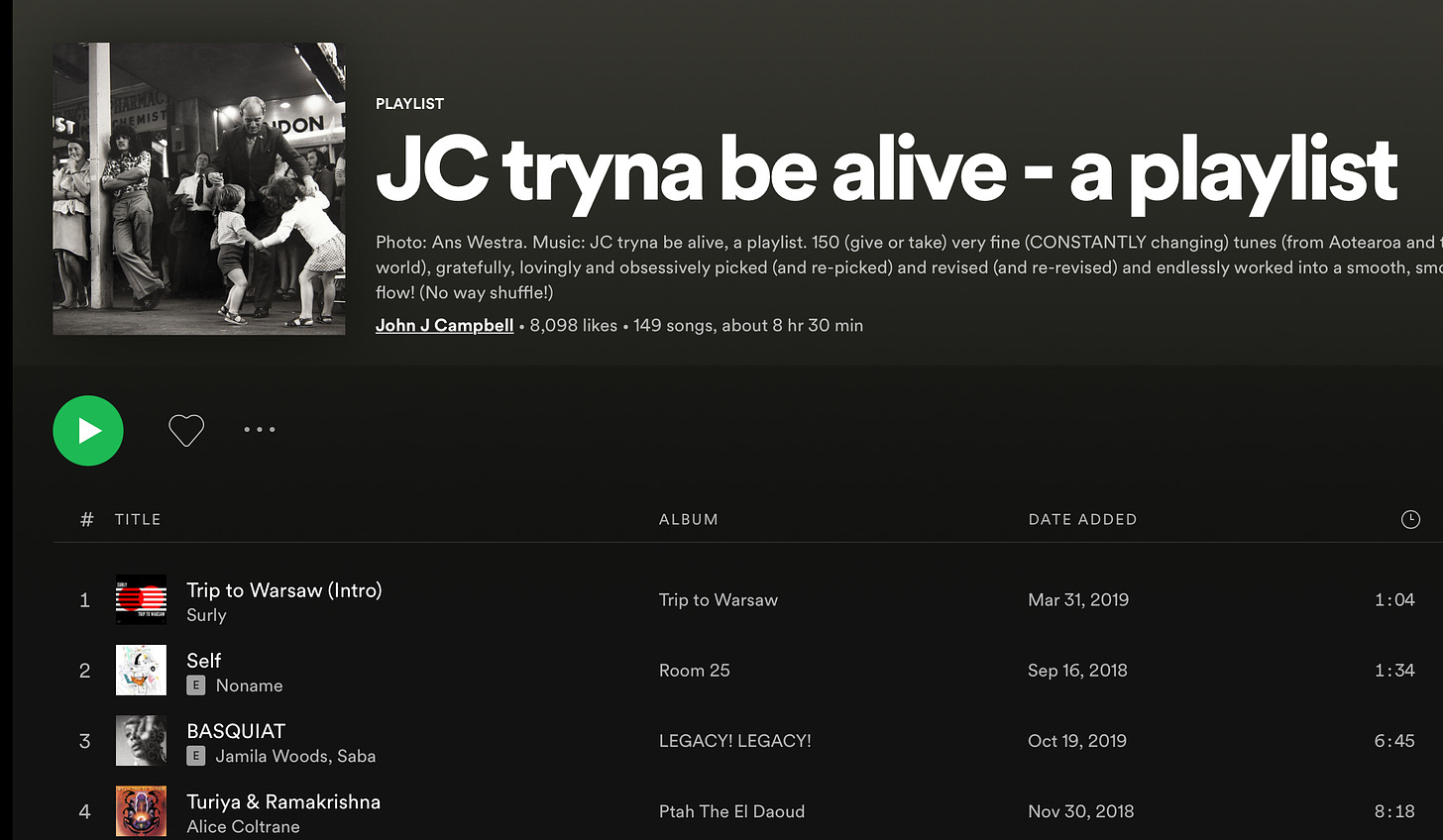
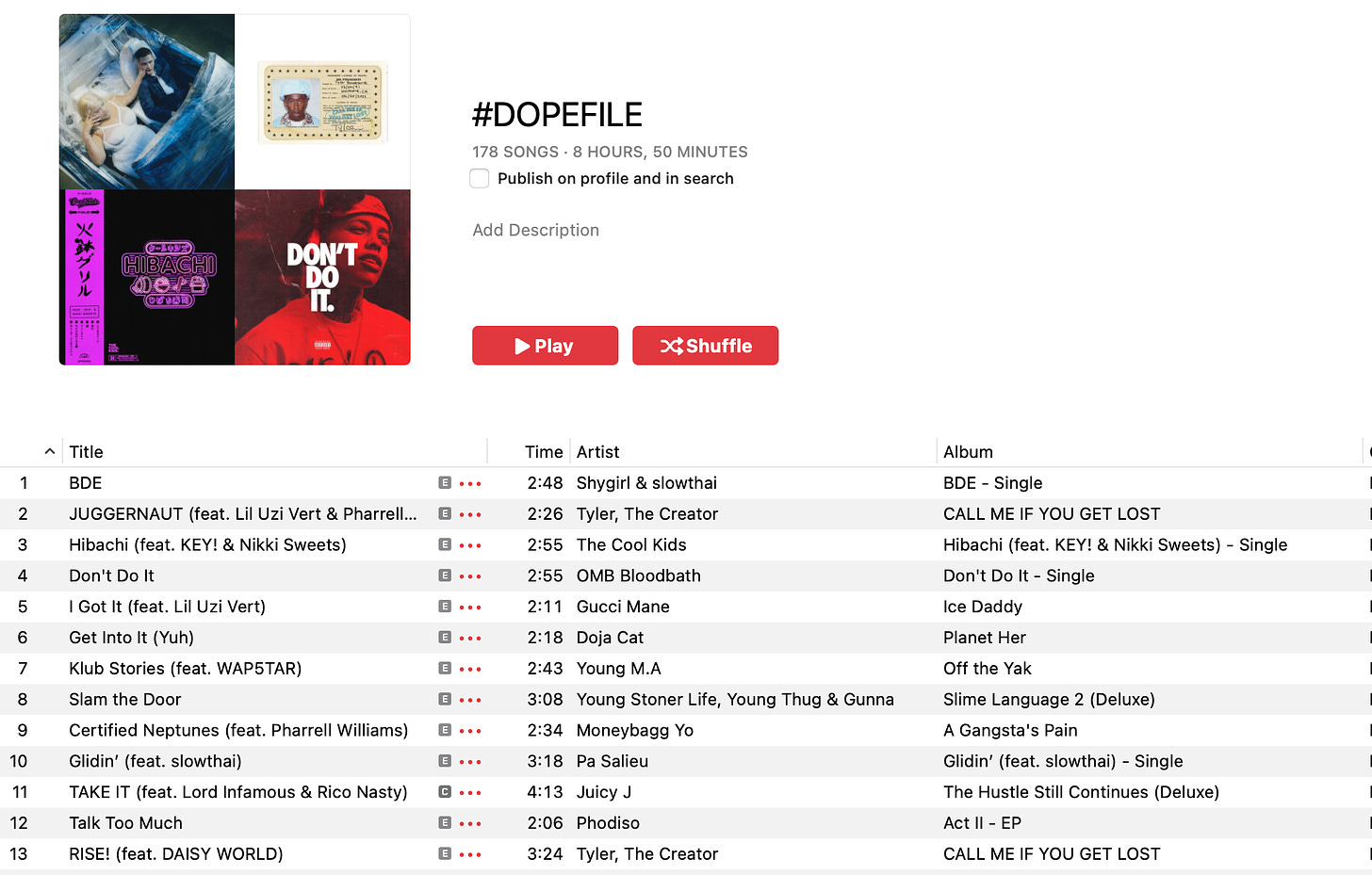
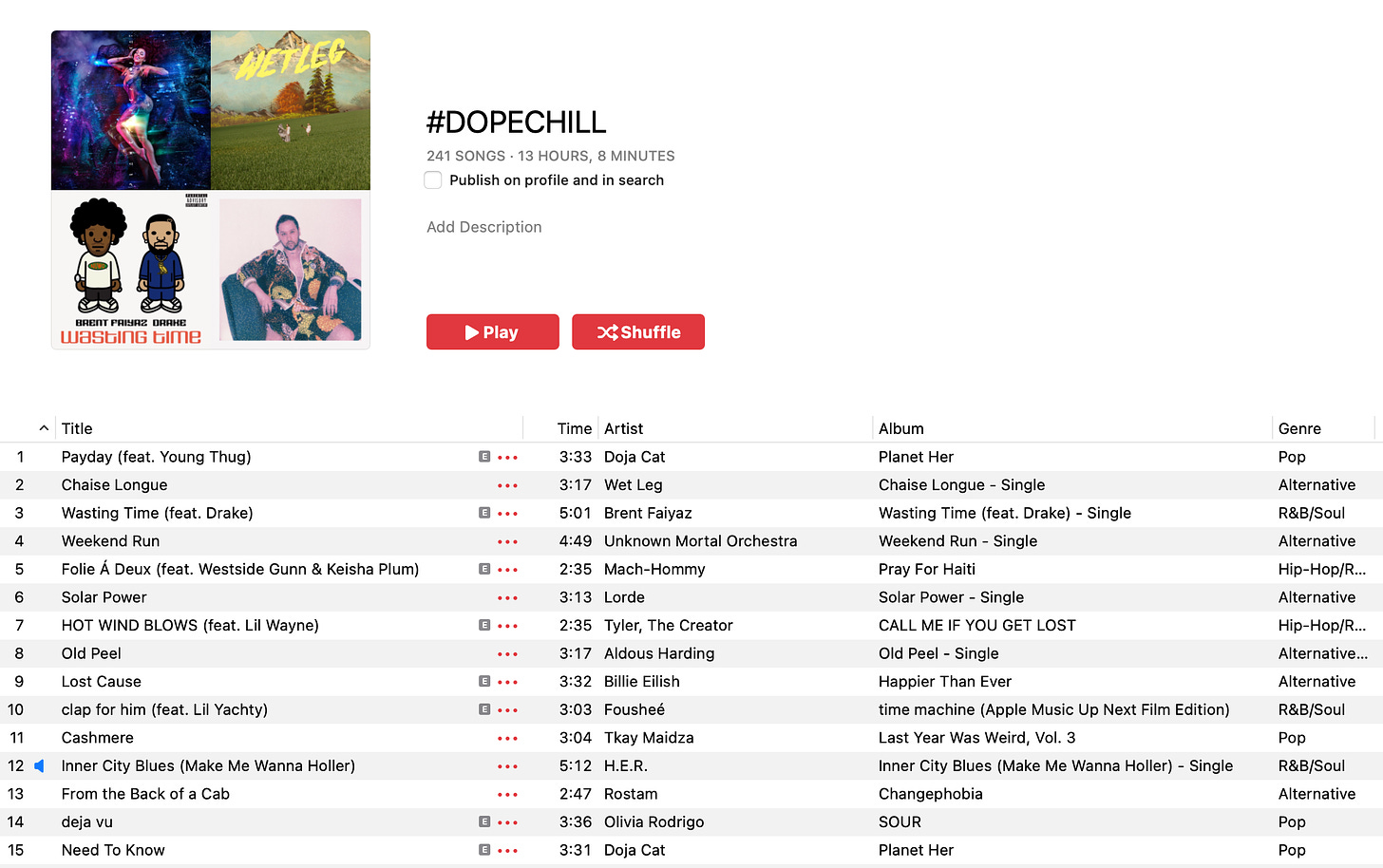
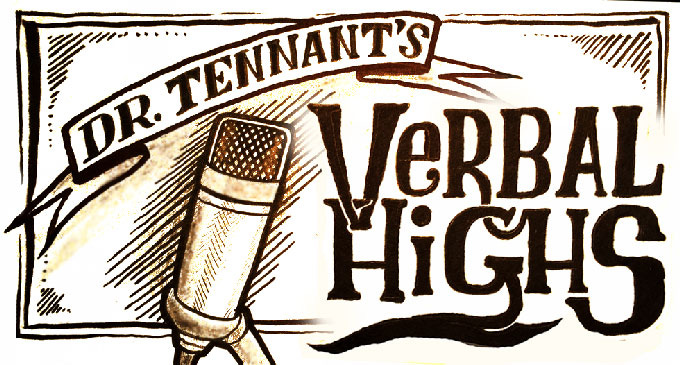
I've been thinking a lot lately about how I discover new music now versus how it used to be in the 90s (radio, TV, music magazines).
I'm very reliant on Spotify. I've discovered some cool new artists via the algorithm giving me a related track after I finish listening to an album. I usually give the New Music Friday a playlist a listen most weeks and will add my faves to a playlist.
Btw, I feel like albums are more of a thing again. I guess there is an incentive for artists to make an album that works as a whole, to encourage more streaming. Plus the Gen Z kids love their vinyls!
Social media is also useful - and in one particular way. I follow various artists on Instagram and some will do Instagram stories of tracks they're listening to. Sometimes it feels like formal promo, other times they're just hyping songs of their less famous friends or just tunes they're loving at the moment.
I also pay a little bit of attention to the NZ top 40, just to keep up with all the stuff that's floating to the top.
I don't want doing all this to feel like work so I don't necessarily do all this all the time. But my big incentive is that while listening to music from the 90s makes me feel old, listening to current music doesn't. There's so much good new music out there!